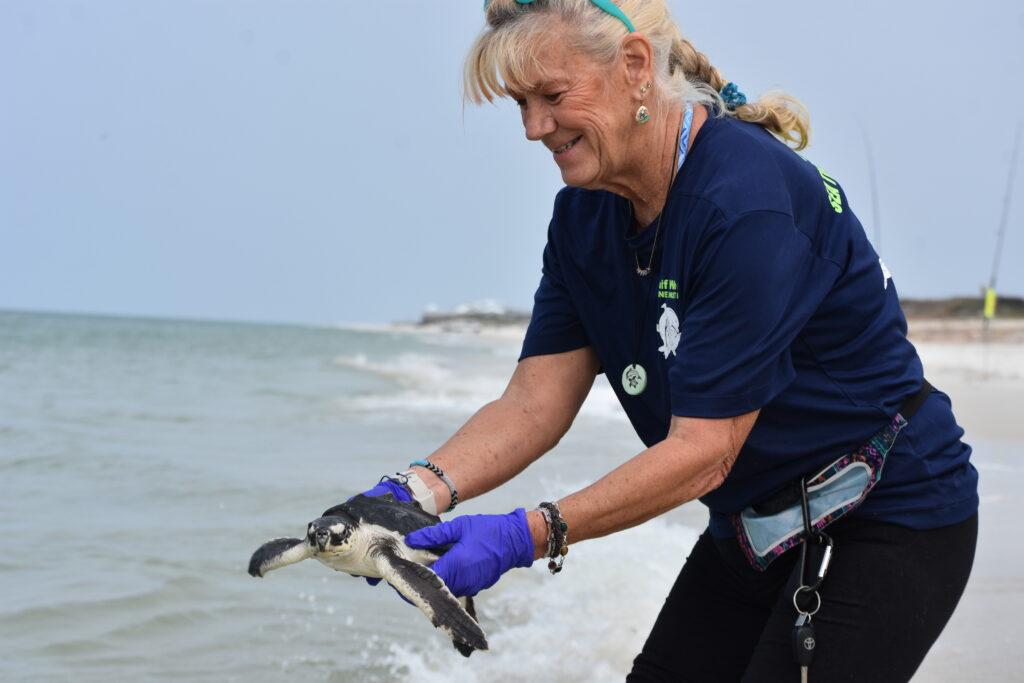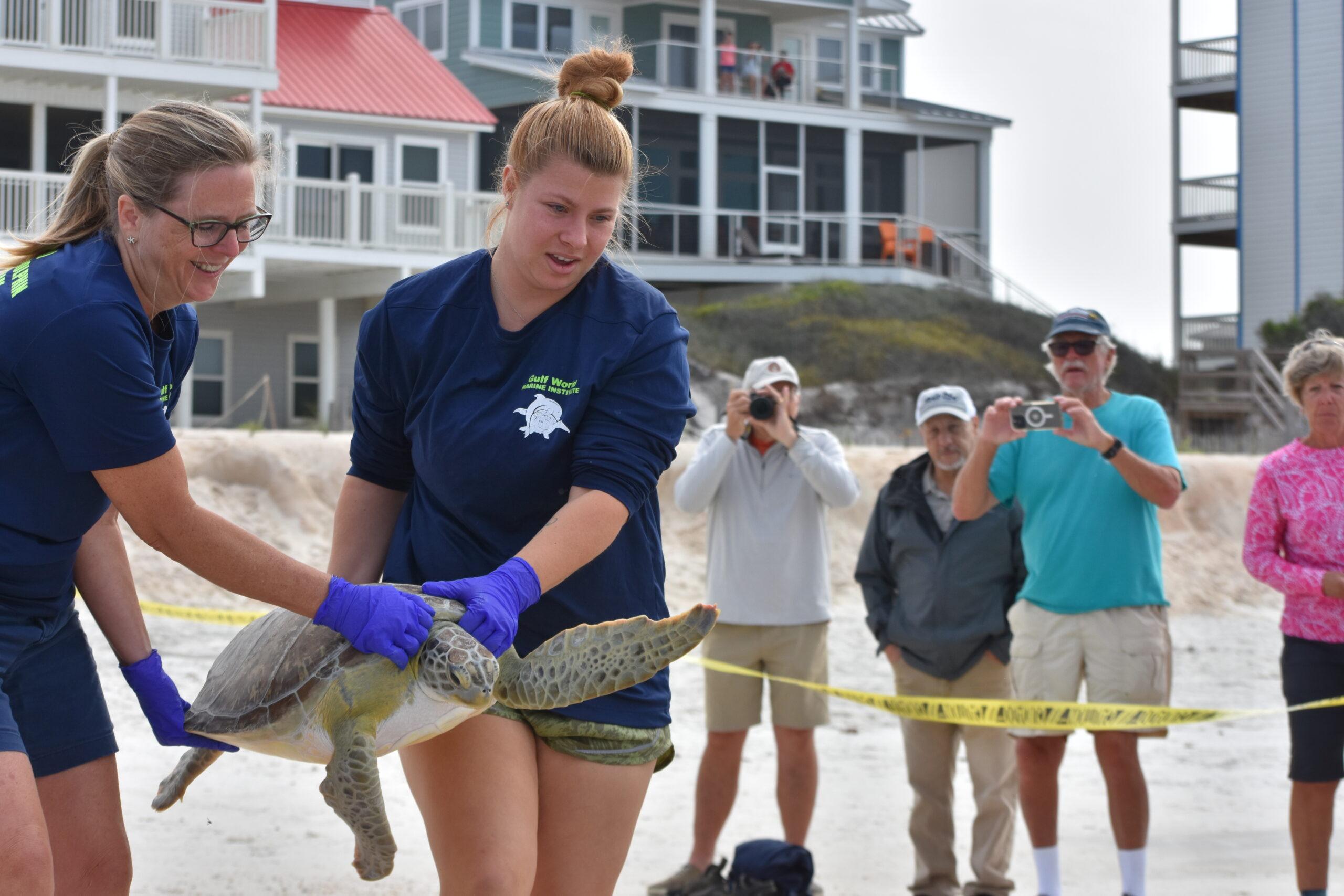Seal the sea turtle returns to the deep
Workers at the Gulf World Marine Institute try not to get attached to the sea turtles they rehabilitate. Most of the facility’s short-term residents aren’t even given names, just numbers that can be used to identify them as needed.
But, according to Lauren Albritton, a stranding coordinator for the Gulf World Marine Institute, when a turtle is in their care for a long time, this can be difficult.
“We always try to distance ourselves as much as possible during the rehab process because our end goal is always to release these animals back out into the natural environment, said Albritton. “But we can help but grow a little fond of some of them.”
Seal, an adult Green Sea Turtle, who had been in the institute’s care since last summer, was released into the Gulf of Mexico at Cape Palms Park on March 9, along with two juvenile Kemp’s Ridley turtles, who had recently recovered from a cold-stun event in Cape Cod.
“The longer they’re with us, the more we work with them, and in his case, because he had such extensive medical care, we did get to interact with him pretty extensively,” said Albritton.
“And a lot of people enjoyed Seal. He was very feisty, and others are probably like ‘we enjoyed his company, but we’re happy to see him go,’” she laughed.
Seal was rescued this past summer in the St. Joseph Bay, where he was found by members of the Florida Coastal Conservancy, who were doing in-water research.

The turtle had suffered vessel strikes, which had caused fairly significant injury.
“Boat strikes are pretty traumatic, and he was already starting the healing process. It wasn’t a brand new injury,” said Albritton. “But when he was brought to us, we were able to provide him with special medical care and a safe environment and regular diet, so that way he could continue the healing process.”
Now, Albritton said, he can manage a full water column, and he’s got a really healthy appetite, which prompted the organization to have him cleared for release.
So, last Thursday, before an excited crowd of onlookers, Seal was carried home to the Gulf of Mexico, wildly flapping his flippers and throwing the volunteers off balance in the process.
While cold stuns in Florida typically only happen during the cold winter months, Albrittain said the Gulf World Marine Institute helps stranded turtles year-round, with many coming to the organization after injury or illness, like Seal.
She encouraged beach-goers to report stranded turtles and marine mammals to the FWC’s wildlife alert hotline by calling *#FWC.
Both the marine institute and the Florida Coastal Conservancy are non-profit organizations. For more information, visit their websites at https://www.gwmi.info/ and http://floridacc.org/.

